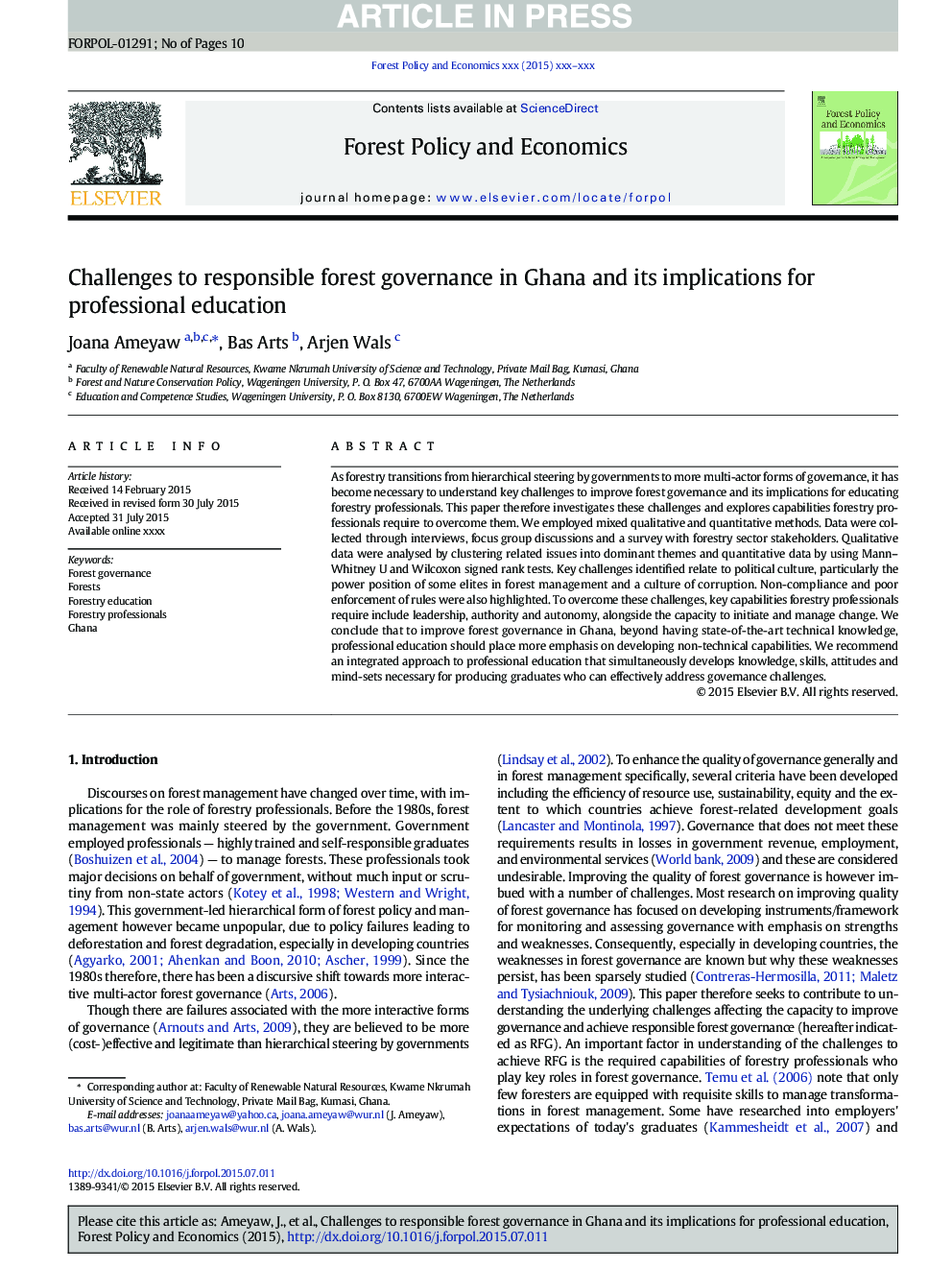| Article ID | Journal | Published Year | Pages | File Type |
|---|---|---|---|---|
| 6544908 | Forest Policy and Economics | 2016 | 10 Pages |
Abstract
As forestry transitions from hierarchical steering by governments to more multi-actor forms of governance, it has become necessary to understand key challenges to improve forest governance and its implications for educating forestry professionals. This paper therefore investigates these challenges and explores capabilities forestry professionals require to overcome them. We employed mixed qualitative and quantitative methods. Data were collected through interviews, focus group discussions and a survey with forestry sector stakeholders. Qualitative data were analysed by clustering related issues into dominant themes and quantitative data by using Mann-Whitney U and Wilcoxon signed rank tests. Key challenges identified relate to political culture, particularly the power position of some elites in forest management and a culture of corruption. Non-compliance and poor enforcement of rules were also highlighted. To overcome these challenges, key capabilities forestry professionals require include leadership, authority and autonomy, alongside the capacity to initiate and manage change. We conclude that to improve forest governance in Ghana, beyond having state-of-the-art technical knowledge, professional education should place more emphasis on developing non-technical capabilities. We recommend an integrated approach to professional education that simultaneously develops knowledge, skills, attitudes and mind-sets necessary for producing graduates who can effectively address governance challenges.
Keywords
Related Topics
Life Sciences
Agricultural and Biological Sciences
Forestry
Authors
Joana Ameyaw, Bas Arts, Arjen Wals,
